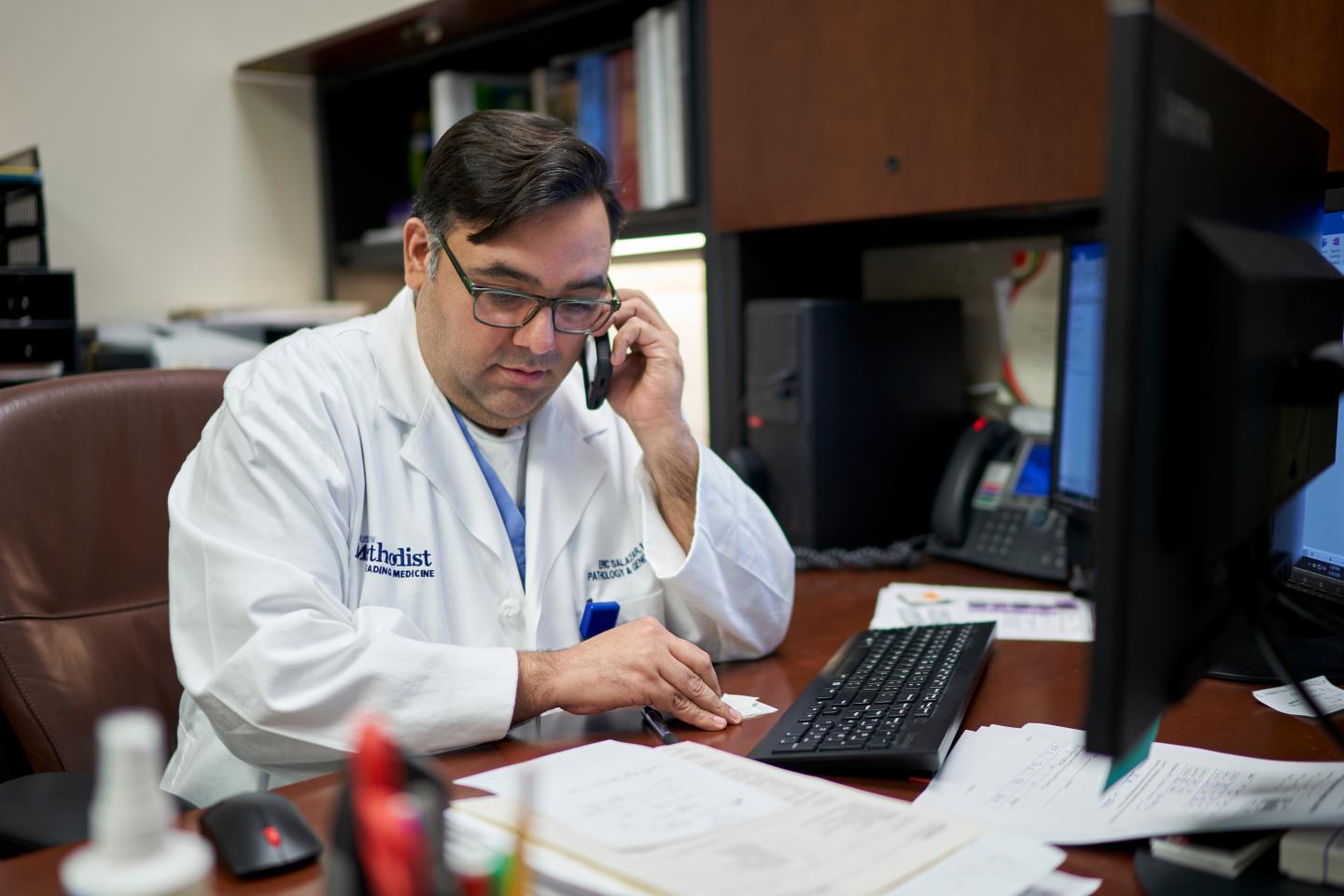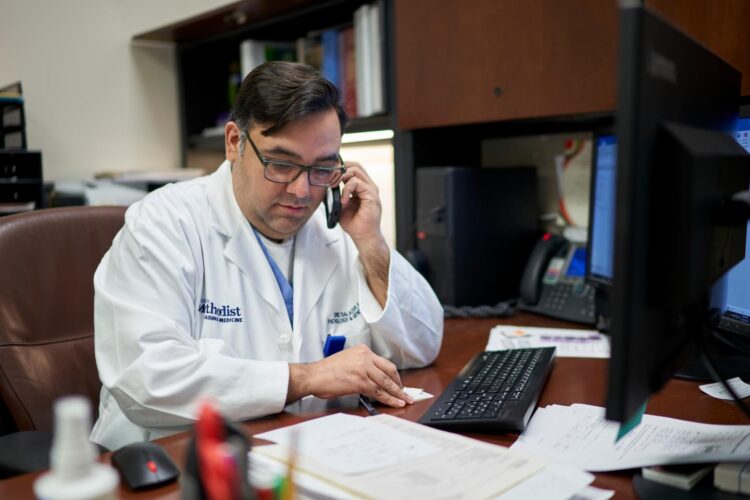
Credit: Houston Methodist
HOUSTON-(March 28, 2020) – Houston Methodist received FDA approval Saturday to become the first academic medical center in the nation to transfuse donated plasma from a recovered COVID-19 patient into a critically ill patient. This treatment was fast-tracked to the bedside over the weekend as the death toll in the COVID-19 pandemic soared to more than 2,000 people across the United States, with more than 100,000 Americans sick from the virus.
Houston Methodist physician scientists began recruiting blood plasma donors on Friday from among the approximately 250 patients who have tested positive for the COVID-19 virus at Houston Methodist hospitals. Willing donors were immediately identified, who each give a quart of blood plasma in a procedure much like donating whole blood. Plasma from someone who has recovered from COVID-19 contains antibodies made by the immune system and used to kill the virus. Transfusing this antibody-rich plasma into a COVID-19 patient – a patient still fighting the virus – may transfer the power of the antibodies into a healing, possibly life-saving therapy.
The first recovered COVID-19 patient to donate plasma was an individual from the Houston metropolitan area who has been in good health for more than two weeks. The plasma was transfused into a COVID-19 patient on Saturday evening at Houston Methodist Hospital
Known as convalescent serum therapy, the concept dates back more than a century, when similar treatments were used during the Spanish flu pandemic of 1918, a diphtheria outbreak in the 1920s, a flesh-eating bacteria epidemic in the 1930s, and during other outbreaks of infectious diseases. While literature abounds on the theory that immunity can be transferred from a healthy individual to a sick individual using convalescent plasma, results have varied. A description of the treatment of five patients in China was published this week in the Journal of the American Medical Association, suggesting that the treatment was beneficial.
“Here at Houston Methodist, we have the capability, the expertise and the patient base from our health care system, and we feel obligated to try this therapy,” said Houston Methodist President and CEO Marc Boom.
“There is so much to be learned about this disease while it’s occurring,” he said. “If an infusion of convalescent serum can help save the life of a critically ill patient, then applying the full resources of our blood bank, our expert faculty, and our academic medical center is incredibly worthwhile and important to do.”
Houston Methodist recruitment began as soon as the FDA issued regulatory guidelines for the study earlier last week. Physician scientists at Houston Methodist already had designed and validated a COVID-19 molecular test two months ago and were prepared to begin collecting data when COVID-19 patients started arriving. The Houston Methodist IRB and regulatory affairs experts reviewed the treatment protocol rapidly and secured the FDA approval this weekend.
In New York City earlier this week, Gov. Andrew Cuomo announced that patient recruitment for plasma donations would begin in a matter of days and initially would focus on the heavily hit New York City suburb of New Rochelle, NY.
Eric Salazar, M.D., Ph.D., principal investigator and a physician scientist in the Department of Pathology and Genomic Medicine at the Houston Methodist Hospital and Research Institute, said a review of COVID-19 patients’ charts indicates that nearly two-thirds of the patients may meet the criteria to donate plasma. Patients with critical underlying conditions and advanced age will not be eligible to donate.
Under FDA guidelines, Houston Methodist’s convalescent serum therapy treatment is classified as an emergency investigational new drug protocol (eIND) that requires FDA approval for each patient infused with donated convalescent serum. Houston Methodist physician scientists will seek additional FDA approval for follow-up studies, possibly a multicenter national trial on the effectiveness of convalescent serum therapy against the COVID-19 virus.
The process for donating plasma is similar to donating blood and takes about an hour. Plasma donors are hooked up to a small device that removes plasma while simultaneously returning red blood cells to their bodies. Unlike regular blood donation in which donors have to wait for red blood cells to replenish between donations, plasma can be donated more frequently, as often as twice a week.
“Convalescent serum therapy could be a vital treatment route, because unfortunately there is relatively little to offer many patients except supportive care, and the ongoing clinical trials are going to take a while. We don’t have that much time,” Salazar said.
###
Media Contact
Patti Muck
[email protected]





